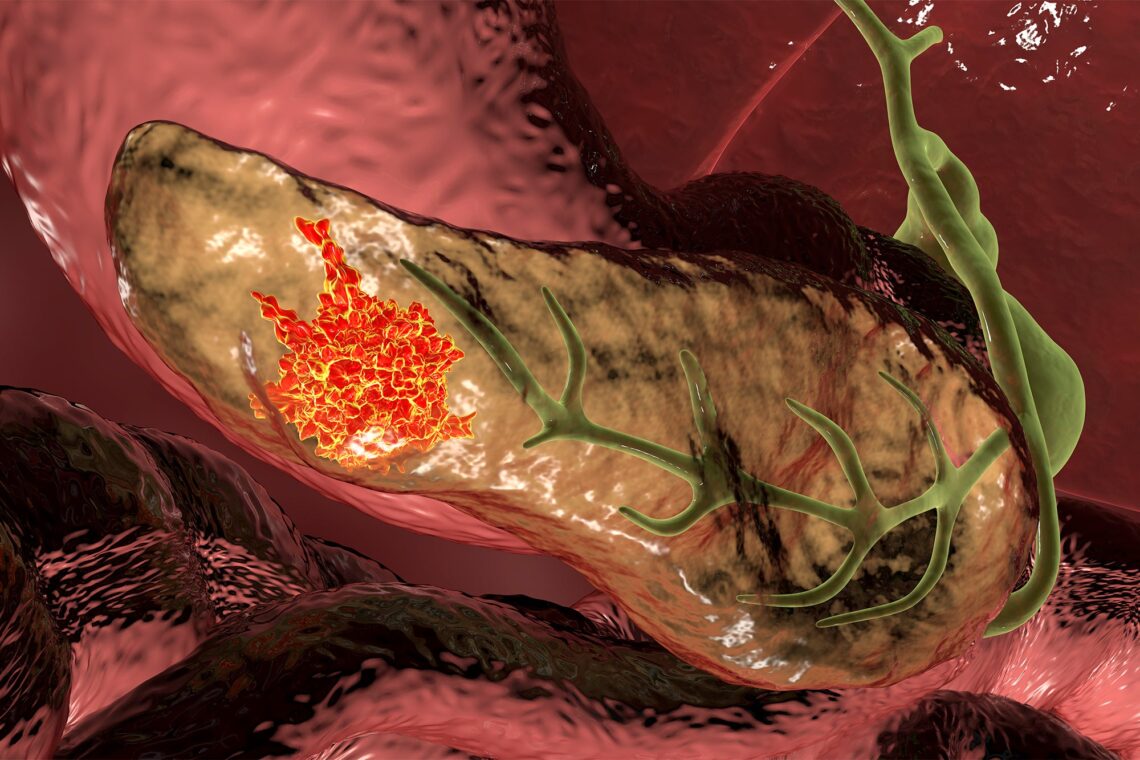Pancreatic cancer is among the deadliest types of cancer, but a new experimental therapeutic vaccine appears promising for people with the most common form of the disease.
In January researchers published results of a phase 1 trial that involved people with so-called KRAS-mutated pancreatic or colorectal cancer who were at high risk of relapse and showed early signs of tumor resurgence. The new vaccine delivers tumor-targeting molecules directly into the lymph nodes. There, it activates T cells, immune cells that play a critical role in the body’s disease-fighting response.
The trial included 25 people with pancreatic or colorectal cancer who had previously undergone surgery, seven of whom also had received radiation therapy. They were given up to 10 doses of the vaccine known as ELI-002, and the results were promising: 84 percent of all participants had positive T cell responses—and all of those who received higher doses had a response. The results of the trial, which was funded by Boston-based biotech company Elicio Therapeutics, were published in Nature Medicine.
On supporting science journalism
If you’re enjoying this article, consider supporting our award-winning journalism by subscribing. By purchasing a subscription you are helping to ensure the future of impactful stories about the discoveries and ideas shaping our world today.
This is just the latest example of how scientists are using vaccines to battle common but deadly cancers. Vinod Balachandran of Memorial Sloan Kettering Cancer Center (MSK) and his colleagues used mRNA technology—like that used in the COVID vaccines—to fight pancreatic cancer. The results of their phase 1 trial were published in May 2023. And last December the companies Moderna and Merck announced positive results from their latest study of an mRNA vaccine used in combination with the immunotherapy drug Keytruda for treating melanoma.
A Challenging Form of Cancer
The American Cancer Society (ACS) estimates that more than 66,000…
Read the full article here







